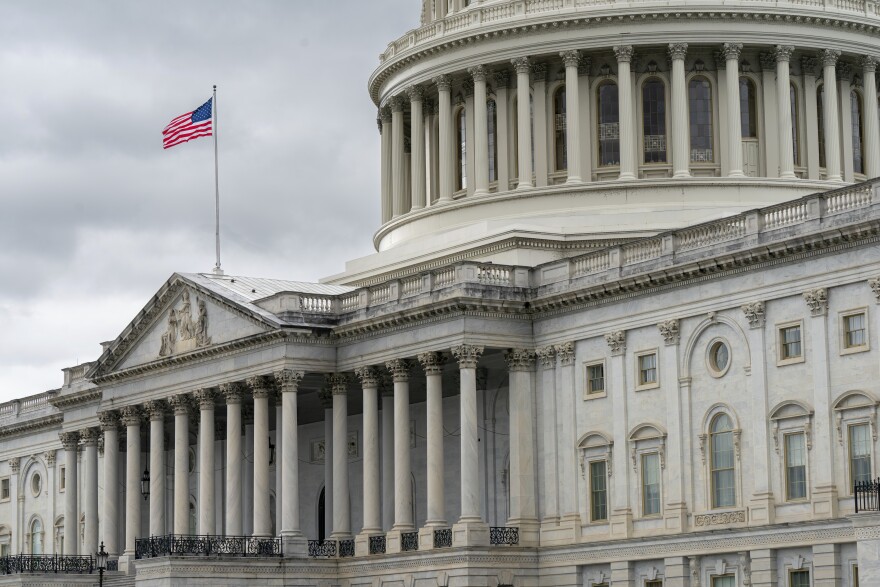Lawmakers in Washington D.C. have reached an impasse over how to fund the federal government.
North Texans may not feel an immediate impact as the government shuts down, but delays could impact federal workers, military families, nonprofits and people who rely on social services like SNAP or unemployment.
Social Security, Medicare and Medicaid
Social Security and Medicare benefits will continue to be distributed, since both are funded outside the annual appropriations process.
However, customer service at Social Security offices in North Texas will be limited -- potentially creating longer wait times for those applying for retirement or disability benefits.
Processing new claims or issuing replacement cards may also be delayed.
Medicare and Medicaid payments to hospitals and doctors will go uninterrupted, but other administrative functions could be slowed.
Unemployment benefits
Unemployment benefits are run by the state but funded by the federal government.
During a shutdown, checks will still go out, but staffing shortages at federal agencies may slow down oversight and processing of new claims.
Families and social services
SNAP and WIC, which are managed by state agencies but funded by the federal government, will continue to operate for some time but could run out of funds quickly, leaving some mothers and children without financial assistance.
Nonprofits serving similar assistance to SNAP and WIC, like United Way and the North Texas Food Bank, may see higher demand for food and housing aid even as those nonprofits face delays in their own federal funding.
Federal employees and contractors
Thousands of federal employees in North Texas could be facing furloughs or, for essential employees, be required to work without pay. Employees placed on furloughs are entitled to backpay once a spending bill is passed.
Contractors, however, are not guaranteed back pay.
Other essential employees, like federal law enforcement officers, will continue to report for duty.
Military families and veterans
Active-duty service members could see delayed paychecks as a government shutdown continues, putting financial strain for households near the Naval Air Station Joint Reserve Base in Fort Worth.
Veteran Affairs medical centers in North Texas are expected to remain open, but future benefits processing may slow down exponentially. Disability claims, which have seen a decreasing backlog, could once again be backed up.
Local projects and infrastructure
The shutdown also threatens to stall major North Texas infrastructure projects. Nearly $500 million in federal money remains pending for regional transit improvements.
To offset any delays, the North Central Texas Council of Governments approved interim funding earlier this month, but depending on how long the shutdown lasts, these funds may not last long.
Education funding
Federal Title I funding that supports low-income schools and funding for special education are at risk if the shutdown drags on.
Colleges and universities could see delays in research grants and work-study payments.
Pell grants and federal student loans are expected to continue, but backlogs at the U.S. Department of Education could delay reimbursement of aid students use to cover out-of-pocket costs like rent and textbooks.
Transportation and travel
The most noticeable change may be seen at both Dallas-Fort Worth International Airport and Dallas-Love Field if the shutdown drags on.
Air traffic controllers are required to work, even without pay. But in the past, longer shutdowns resulted in federal employees not showing up to work in protest, which could impact services further.
Passport services may also see delays as smaller staffs could be overwhelmed by the pace of applications and renewals.
Postal service
The one major service to remain unscathed by a shutdown is the U.S. Postal Service. The USPS is self-funded and is not dependent on congressional appropriations, meaning service in North Texas will remain unchanged.
Why did the government shutdown?
Republicans currently control both the U.S. House of Representatives and the Senate but do not possess a 60-seat supermajority in the Senate. Currently, Republicans need 60 votes to pass a funding bill.
Senate Democrats are using that as blocked the Republican proposal because it lets key health insurance tax credits expire, keeps Medicaid cuts in place, and reduces funding for public health agencies.
What’s next?
A shutdown timeline depends entirely on lawmakers in Washington.
If lawmakers break the deadlock quickly, federally reliant services may not have much to deal with. But if the standoff drags on, services in the area will struggle to operate.
Emmanuel Rivas Valenzuela is KERA's breaking news reporter. Got a tip? Email Emmanuel at erivas@kera.org.
KERA News is made possible through the generosity of our members. If you find this reporting valuable, consider making a tax-deductible gift today. Thank you.



